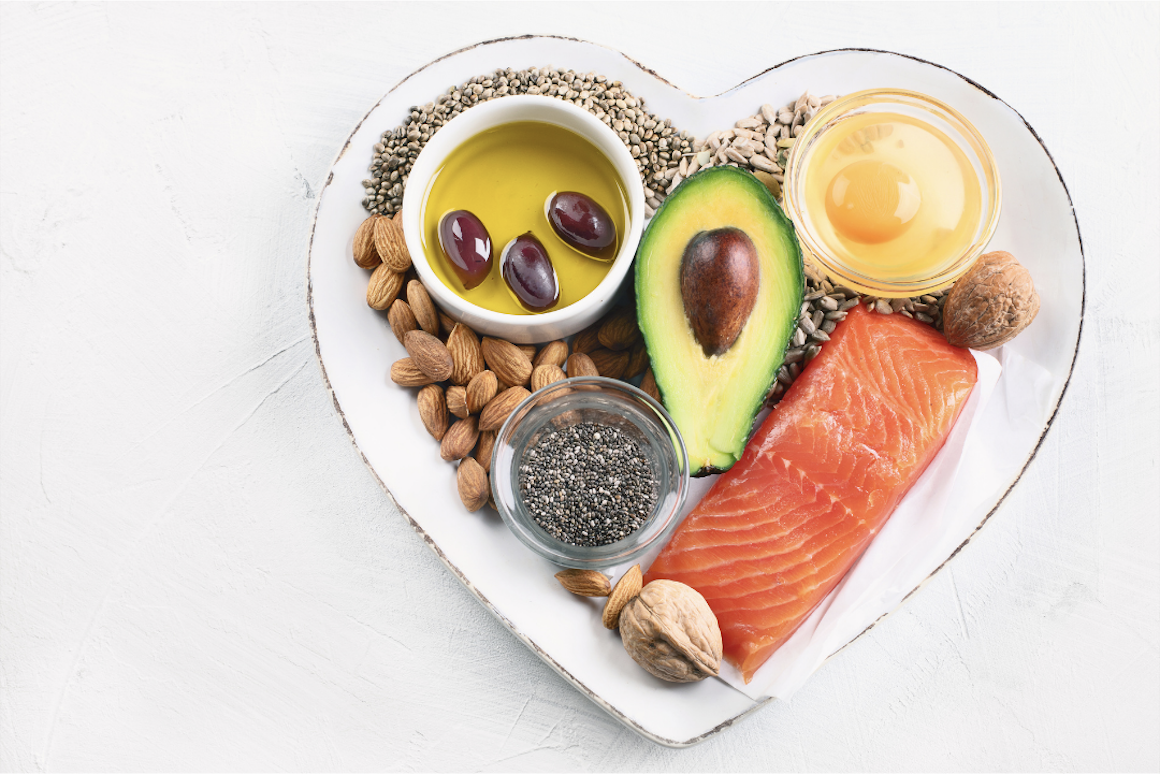
Fuel Your Heart: How Nutrition Supports Cardiovascular Health
An Interview With Dr. Roberta Holt
Cardiovascular disease (CVD) remains the leading cause of death globally, affecting millions of lives each year. From heart attacks and strokes to high blood pressure and atherosclerosis, the burden of heart-related conditions is not only physical but also emotional and economic.
While genetics play a role, lifestyle factors—particularly diet—have a profound impact on cardiovascular health. As Dr. Roberta R. Holt from UC Davis explains, our long-term habits matter, and the foods we choose each day can either support or harm our heart. A heart-healthy life doesn’t require perfection—just steady, informed choices made one day at a time. Lifestyle choices impact cardiovascular health
According to Dr. Holt, “Our diets, or lack of exercise, or other lifestyle factors–smoking, drinking too much, et cetera– just basically produces wear and tear on the body. You get oxidative stress, which changes your metabolism. Over time, this accumulated oxidative stress may lead to chronic illnesses such as cardiovascular disease. On the other hand, a diet rich in whole, nutrient-dense foods can support vascular function, reduce plaque buildup, and keep our arteries flexible and responsive.”
Cardiovascular Disease Risk Factors
Cardiovascular risk factors include both non-modifiable elements—such as genetics and sex—and modifiable lifestyle factors like obesity, smoking, poor diet, and physical inactivity.
“There are biomarkers that we know will increase your risk,” says Dr. Holt. “So let’s say you have high levels of cholesterol, that's a known risk factor. It's a clinical risk factor, blood pressure, et cetera. But it kind of goes back to the lifestyle factors that can affect those.”
Dr. Holt emphasizes that while we can't change our genetics, we can influence key clinical markers like cholesterol and blood pressure through healthy lifestyle choices. These markers, which are measurable through blood tests and vital signs, serve as early warning signs of cardiovascular stress and disease. Ultimately, lifestyle plays a crucial role in managing and preventing cardiovascular risk.
Key Nutrients for a Healthy Heart
Nutrients like omega-3s, soluble fiber, cocoa flavanols, antioxidants, potassium, and magnesium play crucial roles in keeping our blood vessels flexible, reducing oxidative stress, and managing cholesterol and blood pressure.

Dr. Holt’s research has found that cocoa flavanols are particularly promising nutrients for cardiovascular health. “I've studied both olive oil and walnuts and have seen some interesting changes in our short-term studies. The cocoa —we were studying that for years, decades.” Her research found that cocoa flavanols, though not essential nutrients, have been shown to enhance cardiovascular health. She highlighted a major study, COSMOS, which demonstrated a 23% reduction in cardiovascular events from cocoa flavanol supplementation—providing strong evidence that certain foods and compounds can lower cardiovascular risk. Based on these findings, an intake of 400–600 mg of flavanols per day may be beneficial. Natural sources include tea, grape products, berries, apples, and pomegranate juice.
Dr. Holt is currently running a clinical study, exploring the extent to which Chardonnay marc–grape skins and seeds, typically discarded in white wine production—improves gut health and cardiovascular health and as a new source of flavonoids. She encourages people to focus on whole foods with diverse plant-based sources rather than relying solely on supplements.
She explains that while nutrition research often relies on short-term intervention studies and surrogate outcomes, large-scale clinical trials are needed to confirm real health benefits.
Heart-Healthy Eating Patterns
Heart health starts with a healthy plate. To build balanced meals, a simple and effective strategy is to use the “plate method”: fill half your plate with vegetables, one-quarter with whole grains, and one-quarter with lean protein. Prioritize whole, minimally processed foods over highly refined or packaged options to maximize nutrient intake. Additionally, staying hydrated with water or unsweetened beverages supports overall heart health and helps reduce added sugar consumption.
Beyond building a healthy plate there are two eating patterns that studies have shown to benefit your health and heart:
Mediterranean Diet
This diet is rich in plant-based foods, healthy fats, and lean protein. Studies show it can reduce the risk of heart disease by improving cholesterol levels, reducing blood pressure, and lowering inflammation.
Key features include:
- Olive oil as the main fat source
- Plenty of fruits, vegetables, legumes, and whole grains
- Moderate consumption of fish and poultry
- Low intake of red meat and processed foods
DASH Diet (Dietary Approaches to Stop Hypertension)
Originally developed to reduce high blood pressure, the DASH diet also improves overall cardiovascular health.
Key features include:
- High intake of fruits, vegetables, and low-fat dairy
- Emphasis on whole grains, lean protein, and nuts
- Reduced sodium and sugar intake
- Balanced macronutrients with controlled portion sizes
Limiting Harmful Nutrients (Regardless of Diet):
- Added sugars (found in sugary drinks, pastries)
- Sodium (excess salt in processed foods)
Developing Healthy Habits Is the Key
Dr. Roberta R. Holt emphasizes that in addition to diet, daily habits such as regular physical activity are crucial for cardiovascular health. She recommends simple actions like walking or taking the stairs and encourages people to evaluate their food choices—replacing low-nutrient snacks with healthier options like nuts, fruits, or vegetables. She also highlights the importance of developing habits to make healthy eating easier, such as prepping food in advance.

Dr. Holt shares that even as a nutrition professional, maintaining these habits is a continual effort. “I've struggled all my life as well. I used to walk 45 minutes or an hour a day, but life got in the way, life got busy. And I just kind of got out of the habit,” she explains.
Dr. Holt prefers vegetables but has to intentionally incorporate fruits into her routine, especially by prepping them. When asked if there was a personal turning point, she reflects that there isn’t always a single moment; staying healthy is a lifelong process with ups and downs. She says not to feel discouraged by setbacks—just to restart and keep going.
Reference:
- Estruch, R., Ros, E., Salas-Salvadó, J., Covas, M. I., Corella, D., Arós, F., ... & Martínez-González, M. A. (2013). Primary prevention of cardiovascular disease with a Mediterranean diet. New England Journal of Medicine, 368(14), 1279–1290. https://doi.org/10.1056/NEJMoa1200303
- National Heart, Lung, and Blood Institute. (2020). DASH Eating Plan. U.S. Department of Health and Human Services. Retrieved from https://www.nhlbi.nih.gov/education/dash-eating-plan
- Harvard T.H. Chan School of Public Health. (n.d.). The Healthy Eating Plate. Retrieved June 2025 from https://www.hsph.harvard.edu/nutritionsource/healthy-eating-plate/
- U.S. Department of Agriculture and U.S. Department of Health and Human Services. (2020). Dietary Guidelines for Americans, 2020–2025 (9th ed.). Retrieved from https://www.dietaryguidelines.gov/
Media Resources
- Roberta R. Holt, Ph.D., Department of Nutrition, rrholt@ucdavis.edu
- Public Relations, Department of Nutrition, nutritionpr@ucdavis.edu
